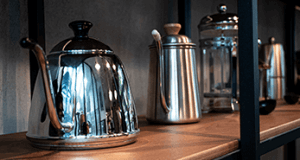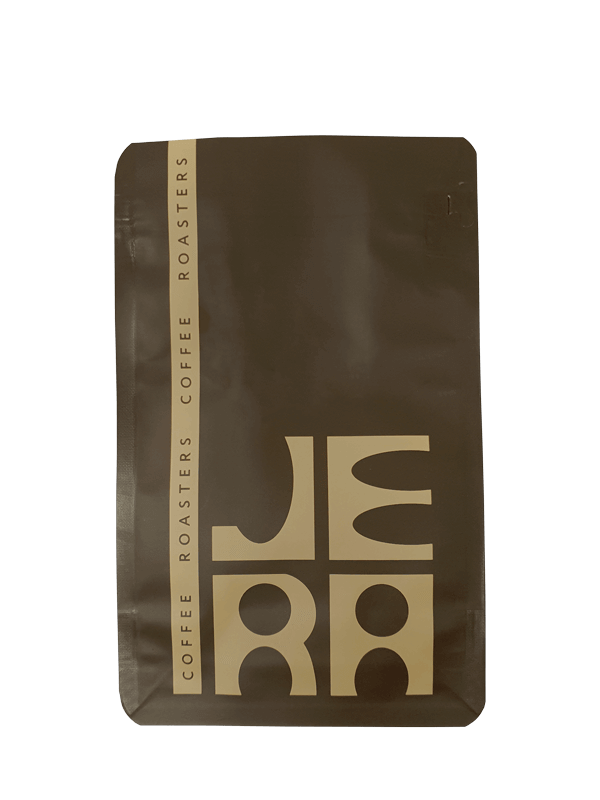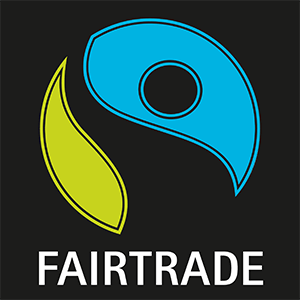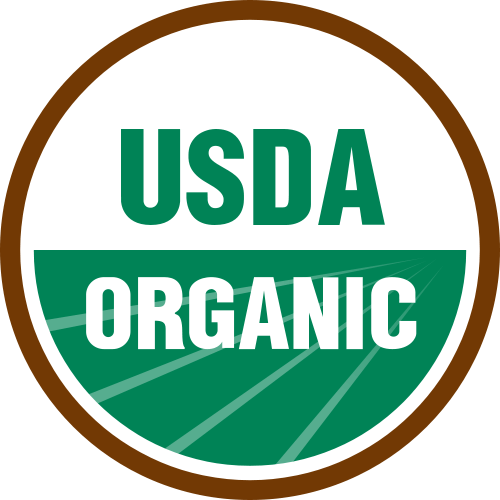קפה קלוי קולומביה | Cauca, finca El Paraiso
קפה קולומביאני מיוחד ביותר
העיבוד המורכב מעניק לקפה הזה פרופיל טעם ארומטי ביותר עם טעמים מובהקים של ליצ'י, וניל ואפרסק. קלייה בהירה, לפילטר.
₪60.00 – ₪400.00
ברכישת כל סוגי קפה קלוי בסכום:
בין 600 ש"ח ל-1000 ש"ח עם קוד קופון "10%" תקבלו 15% הנחה
בין 1001 ש"ח ל-1500 ש"ח עם קוד קופון "20%" תקבלו 25% הנחה
מעל 1501 ש"ח עם קוד קופון "30%" תקבלו 30% הנחה
חוות הקפה El Paraíso היא חווה משפחתית יוצאת דופן. דייגו סמואל ובני משפחתו פיתחו יחד את זן הקסטילו – זן ערביקה חדש, איכותי ובעל יציבות גבוהה.
עקרונות החקלאות שלהם מבוססים על התאמה מדויקת לצורכי כל עץ. דייגו וצוותו פיתחו שיטות מתקדמות של תסיסה ועיבוד, תוך שימוש במיקרואורגניזמים שאספו בעצמם, ומשלבים אותם בתהליך הייצור – בדומה לשיטות בתעשיות אחרות כמו לחם, מוצרי חלב, יין, בירה ותרופות.
בנוסף, דייגו פיתח מייבשי קפה ידידותיים לסביבה, הפועלים באמצעות אנרגיית שמש ורוח – כחלק מתהליך העיבוד.
בשנת 2008, דייגו סמואל החל את פרויקט גידול הקפה המשפחתי בחוות El Paraíso שבמחוז קאוקה – צעד שהפך למסע ששינה את חייו.
הוא הציב לעצמו מטרה להתמודד עם האתגרים שבענף הקפה, ולמצוא עבורם פתרונות דרך חדשנות, שילוב טכנולוגיות מתקדמות ושימוש בשיטות העבודה הטובות ביותר לגידול ולעיבוד.
דייגו היה גם מהחקלאים הראשונים בקולומביה שהתנסו בתסיסת קפה באמצעות הוספת מיקרואורגניזמים ושמרים מסוגים שונים. עד היום הוא פיתח מתכונים ניתנים לשחזור, המאפשרים לו ליצור פרופילי טעמים לפי דרישה.
עיבוד שטוף בתסיסה אנאירובית כפולה עם הלם תרמי
התהליך מתחיל בתסיסה אנאירובית (כלומר, ללא נוכחות חמצן) שנמשכת 48 שעות בטמפרטורה של 18 מעלות צלזיוס, בתוך מיכלים המצוידים בשסתום לשחרור לחץ. לאחר מכן, הפירות עוברים תסיסה אנאירובית נוספת, הפעם בתוך שכבת הנוזלים של הקפה ללא קליפתם, במשך 48 שעות נוספות – בטמפרטורה של 21 מעלות צלזיוס.
השלב השלישי כולל שטיפה בתהליך של הלם תרמי: תחילה במים בטמפרטורה של 40 מעלות צלזיוס, ולאחר מכן במים קרים בטמפרטורה של 12 מעלות. לבסוף, הפולים עוברים ייבוש מבוקר במשך 34 שעות בטמפרטורה של 35 מעלות, עד שרמת הלחות שלהם יורדת מ־25% לרמה הרצויה לקלייה – בין 10% ל־11%.
קפה מקולומביה
קולומביה היא מדינה הררית, עם גבהים שמגיעים עד 2,200 מטר מעל פני הים. הקפה גדל במדרונות תלולים, ולכן יש לקטוף אותו כולו ביד. המדינה נמצאת ישירות על קו המשווה, ובשילוב עם טווח הגבהים הרחב שבה, ניתן לקצור קפה כמעט כל השנה. רוב הקפה הקולומביאני מגודל בחוות קטנות שבבעלות חקלאים עצמאיים – גודל ממוצע של חווה הוא רק 3 דונם. רבות מהחוות ממוקמות ביערות הרריים, שם הקפה גדל בצל עצים, והגישה אליהן יכולה להיות קשה מאוד. לעיתים קרובות אי אפשר להגיע אליהן ברכב, ולכן חקלאים רבים משתמשים בסוסים או חמורים – שיכולים לעבור במקומות שרכב אינו מסוגל.
האקלים הלח והטמפרטורות הנמוכות בגבהים הגבוהים גורמים לכך שעיבוד רטוב (washed) הוא השיטה הנפוצה ביותר לעיבוד קפה בקולומביה.
קולומביה היא יצרנית הקפה השלישית בגודלה בעולם. חוות הקפה במדינה ממוקמות באזורים הרריים, בטווח גבהים של בין 1,000 ל-2,300 מטר מעל פני הים. בזכות טווח הגבהים הרחב הזה, קולומביה מציעה מגוון רחב של פרופילים לקפה – מקפה קליל ופרחוני ועד קפה עשיר ושוקולד.
פייר טרייד (Fair Trade)
מטרת הסמכה זו היא לתמוך בתנאי עבודה ושכר הוגנים בחוות במדינות מתפתחות. באופן מסוים, היא מקדמת סחר הוגן, ולא מתייחסת רק לקפה אלא גם למוצרים נוספים. ההסמכה פופולרית במיוחד בקרב צרכנים במדינות מפותחות שבהן קיימת מודעות גבוהה יותר לצריכה מוסרית – בעיקר בארצות הברית ובצפון אירופה.
הסמכת Fair Trade מבטיחה שלא נעשה שימוש בעבודת ילדים בחוות, שעובדים מקבלים שכר הוגן, ושמתקיימים תקני בריאות ובטיחות בעבודה. הארגון מבצע בדיקות שוטפות בחוות המאושרות כדי לוודא שהן עומדות בדרישות.
Colombia El Paraiso Lychee
El Paraíso is a unique, family-owned coffee farm. Diego Samuel and his family developed the Castillo – a new Arabica variety known for its consistently high quality.
Their agricultural practices are rooted in delivering exactly what each tree needs. Diego and his team pioneered advanced fermentation and processing methods: for example, they utilize microorganisms they’ve cultivated themselves, integrating them into production processes similar to those in breadmaking, dairy, wine, beer, and antibiotics.
Diego also designed environmentally friendly coffee dryers that operate using solar and wind power.
In 2008, Diego Samuel launched the family project at El Paraíso farm in the Cauca region-marking the beginning of a life-changing adventure.
He set out to find answers and solutions to challenges facing the coffee industry. Driven by a dedication to improving production through innovation, technology, and best-practice cultivation and processing techniques.
Diego was among the first farmers in Colombia to experiment with coffee fermentation enhanced by adding various microorganisms and yeasts. To date, he has developed several replicable “recipes” that allow him to craft specific flavor profiles on demand.
Coffee from Columbia
Colombia is a mountainous country, with elevations reaching up to 2,200 meters. Coffee grows on steep hillsides, so it must be harvested entirely by hand. The country lies directly on the equator, and combined with its broad altitude range, this allows for nearly year-round harvesting. Most Colombian coffee is grown on small farms owned by independent farmers — the average farm size is only 3 hectares. Many of them are located in mountain forests, where coffee grows in the shade of trees, and accessing these farms can be extremely difficult. Often, it's impossible to reach them by car, so horses or donkeys are commonly used by farmers — they can pass where vehicles cannot.
The country’s humid climate and low temperatures at high altitudes make washed processing the most common method for Colombian coffee.
Colombia is the third largest coffee producer in the world.
Coffee farms in the country are located in mountainous regions, ranging from 1,000 to 2,300 meters above sea level. Due to this wide altitude range, Colombia offers a great diversity of coffee profiles—from light and floral to rich and chocolatey.
Washed Double Anaerobic thermal shock process
The process begins with anaerobic fermentation at 18 °C in sealed valve‑release tanks for 48 hours. Next, cherries undergo a second anaerobic fermentation fully submerged in coffee liquid at 21°C for another 48 hours.
The third stage is thermal shock washing—first with water at 40 °C, then with water at 12 °C. Finally, beans undergo controlled drying for 34 hours at 35 °C to reduce relative humidity from 25% to the optimal 10–11% for green coffee beans ready for roasting.
Fair Trade
The goal of this certification is to support fair working conditions and wages on farms in developing countries. In a way, it advocates for fair trade and applies not only to coffee but also to other products. It is especially popular among consumers in developed countries with more conscious consumption habits — mainly in the U.S. and Northern Europe.
Fair Trade certification means that no child labor is used on the plantation, and workers receive fair wages while health and safety standards are maintained. The organization regularly inspects the conditions on certified farms to ensure compliance.













